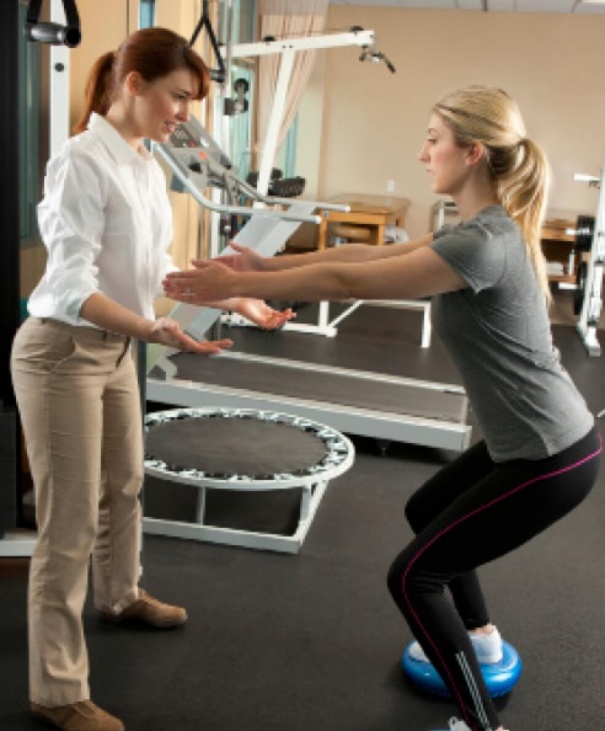If you experience the ill effects of vertigo, dizziness, gaze instability, visual disturbance, imbalance and/or falls, then our team of vestibular rehabilitation therapists is here for you.
Vestibular rehabilitation therapy (VRT) or vestibular rehabilitation (VR) is a specialized form of therapy intended to alleviate or reduce symptomatic vestibular disorders. Our specialized balance therapists work closely with your primary care physician, neurologist, ENT and/or audiologist to provide you with the best possible outcomes.
Vestibular rehabilitation therapy begins with your balance therapist taking a comprehensive clinical assessment that includes a detailed history of your symptoms, their severity and how they adversely affect your daily activities. Your therapist will then discuss with you the circumstances of what precipitates them by documenting your history of falls, previous and current activity levels, medications, hearing or vision problems and other medical issues.
In addition, your balance therapist will administer tests to more objectively evaluate your visual and vestibular systems and to observe how well your eye movement is controlled. Further tests gather information about pain, muscle strength, extremity and spine range of motion, coordination, posture, balance, and walking ability.
After your assessment, an individualized program will be created that can be performed regularly at home to:
- Promote compensation, habituation or adaptation – by teaching the brain how to use other senses to either substitute for the deficient vestibular system or to significantly decrease symptoms by altering perception
- Reduce dizziness – through repeated exposure to specific movements or visual stimuli that provoke dizziness
- Improve eye control movement – so vision doesn’t jump or bounce around and is clear during head movement
- Promote balance and steadiness – so that work, leisure and self-care can be performed successfully
- Prevent falls
Education is also an integral part of vestibular rehabilitation. It’s important for you to understand the science behind your vestibular problems and how they relate to your everyday functioning. In addition to your home exercises your balance therapist may ask to see you one or two times a week to check the progression or modify your exercises.









